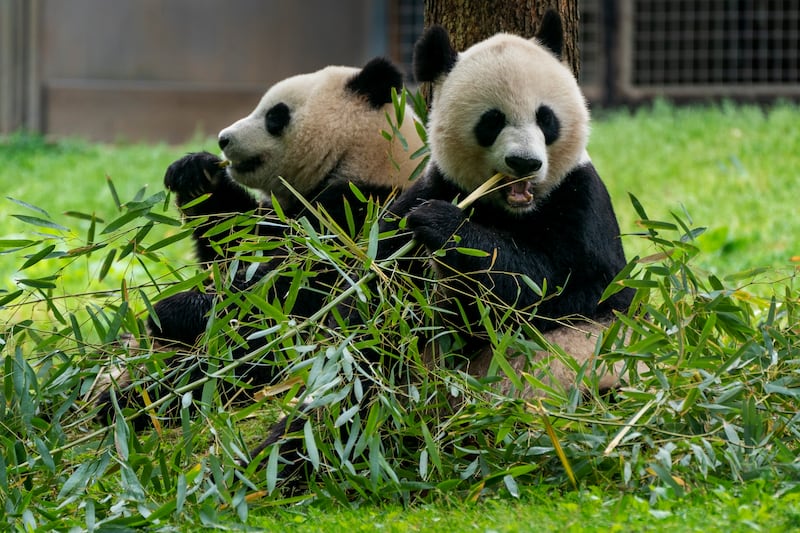In a fresh approach to “panda diplomacy,” China expects all the black and white bears to return to their country of origin by the end of 2024, as reported by The Washington Post.
Zoos all over the United States and the United Kingdom will soon send the fan-favorite animals back to China. Smithsonian National Zoo in Washington, D.C., has scheduled to return its three panda bears to China on Dec. 7, as their decadeslong loan agreement expires, per Today. The Atlanta Zoo is home to four giant pandas, including two cubs. The parents will stay at the zoo until the end of 2024, when the loan agreement concludes.
Giant pandas have slowly been leaving U.S. zoos in recent years. After 20 years at the Memphis Zoo, pandas Ya Ya and Le Le returned to China in April. The San Diego Zoo’s pandas left for China in 2019, with the hope for more pandas in the future.
Without any panda loan extensions in sight, the U.S. will likely have no giant panda bears for the first time since 1972, according to The Washington Post.
In the U.K., giant panda loans are also coming to an end, and the pandas will be returning to their home country this year. Following a 10-year loan, pandas of Edinburgh Zoo will travel back to China in December, per the BBC.
“As the U.K.’s only giant pandas, they have been incredibly popular with visitors, which has helped to connect millions of people to nature as well as raising vital funds for wildlife conservation,” said the society’s chief executive David Field, per the Straits Times.
“We will be providing as many opportunities as possible for people to say goodbye and to celebrate the tremendous impact these two charismatic bears have had on our communities, helping to create a world where nature is protected, valued and loved.”
Relations between China and the West have deteriorated in recent years. China’s decision to tighten the reins on panda diplomacy is a symptom of political tension within U.S.-China relations.
“This is perhaps Beijing’s way of signaling to the West that they may not be very happy with how things are going,” said Chee Meng Tan, an associate professor at the University of Nottingham in Malaysia who studies “panda diplomacy,” per The Washington Post.
“This may be one way of telling people that. ‘You’re not treating us very well, so maybe we’ll pull out our pandas,’” Tan added.
Pandas have long been a symbol of U.S.-China relations. In 1972, when President Richard M. Nixon made his monumental visit to communist China, the government of Mao Zedong gifted first lady Pat Nixon with two giant pandas.
“On behalf of the people of the United States, I am pleased to be here and accept the precious gift of the panda — pandas,” Mrs. Nixon said at the time, per The New York Times.
In 1982, the panda program switched things up. No more pandas would get gifted to the U.S.; rather, it could lease a panda bear from China for an annual fee of roughly $1 million a piece, reports Fox News. Leases typically lasted 10 years and were often extended. Fees are also required for panda cubs born in the U.S.
As tensions between the West and China escalate, the panda program will evolve once again. Panda privilege depends on friendly relations with China.
“China now requires countries that have been given the privilege of hosting pandas to be friendly to China, and if they’re not doing so sufficiently, then pandas will be withdrawn,” Steve Tsang, director of the China Institute at the School of Oriental and African Studies in London, said in an email to The Washington Post on Thursday.
Amid an oncoming panda drought in the U.S. and U.K., one country has recently welcomed the symbolic creatures with open arms. In 2019, Chinese President Xi Jinping gifted Russia’s Vladimir Putin with two pandas during a ceremony at the Moscow Zoo, reported Reuters. Putin described the gesture as a sign of China’s “respect and trust in Russia.”
“When we talk about pandas, we always end up with a smile on our faces. We accept this gift with great respect and gratitude,” Putin said in 2019, per Reuters.
“These animals are a national symbol for China, and we greatly value this gesture of friendship.”



